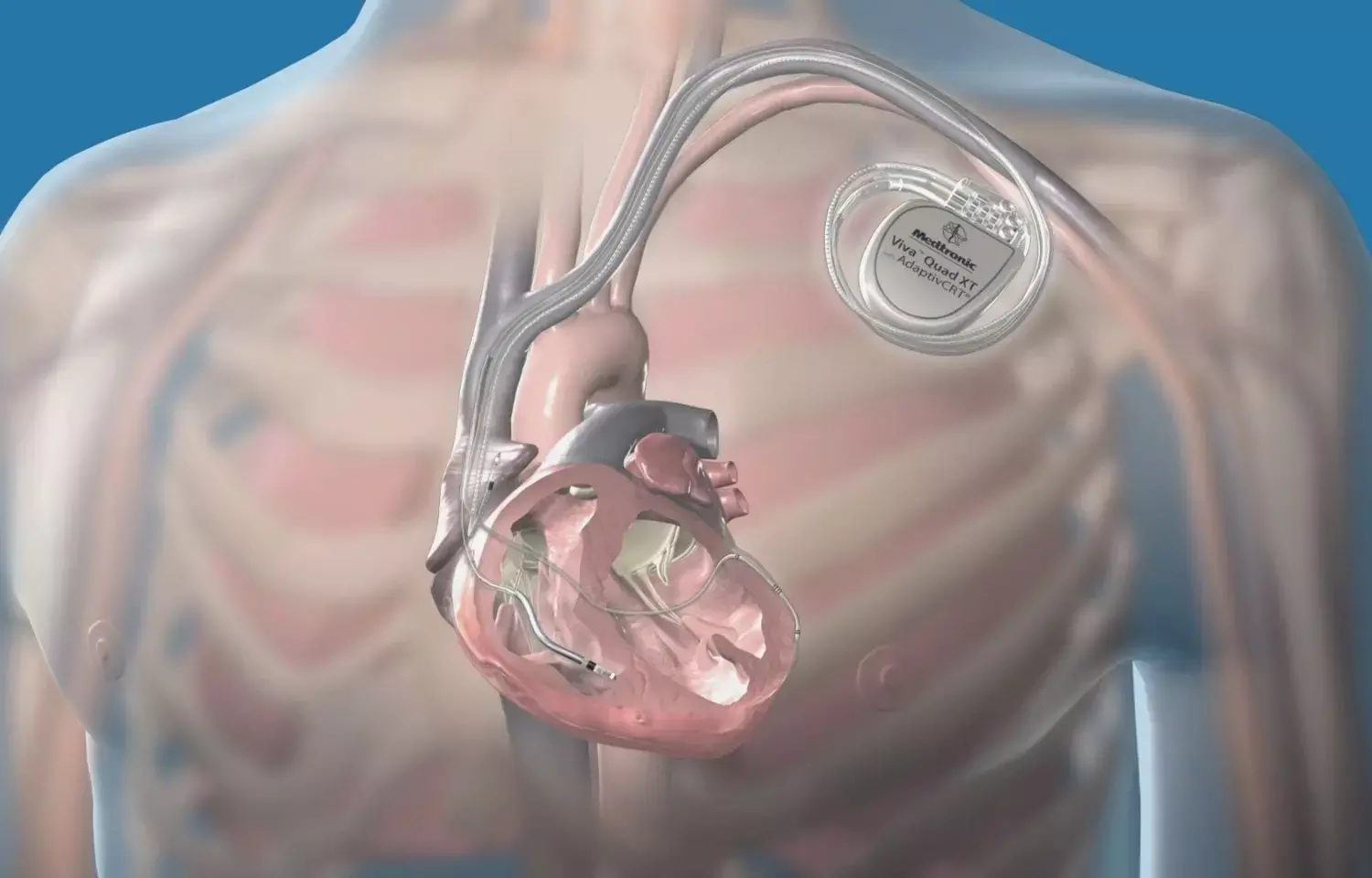- Home
- Medical news & Guidelines
- Anesthesiology
- Cardiology and CTVS
- Critical Care
- Dentistry
- Dermatology
- Diabetes and Endocrinology
- ENT
- Gastroenterology
- Medicine
- Nephrology
- Neurology
- Obstretics-Gynaecology
- Oncology
- Ophthalmology
- Orthopaedics
- Pediatrics-Neonatology
- Psychiatry
- Pulmonology
- Radiology
- Surgery
- Urology
- Laboratory Medicine
- Diet
- Nursing
- Paramedical
- Physiotherapy
- Health news
- Fact Check
- Bone Health Fact Check
- Brain Health Fact Check
- Cancer Related Fact Check
- Child Care Fact Check
- Dental and oral health fact check
- Diabetes and metabolic health fact check
- Diet and Nutrition Fact Check
- Eye and ENT Care Fact Check
- Fitness fact check
- Gut health fact check
- Heart health fact check
- Kidney health fact check
- Medical education fact check
- Men's health fact check
- Respiratory fact check
- Skin and hair care fact check
- Vaccine and Immunization fact check
- Women's health fact check
- AYUSH
- State News
- Andaman and Nicobar Islands
- Andhra Pradesh
- Arunachal Pradesh
- Assam
- Bihar
- Chandigarh
- Chattisgarh
- Dadra and Nagar Haveli
- Daman and Diu
- Delhi
- Goa
- Gujarat
- Haryana
- Himachal Pradesh
- Jammu & Kashmir
- Jharkhand
- Karnataka
- Kerala
- Ladakh
- Lakshadweep
- Madhya Pradesh
- Maharashtra
- Manipur
- Meghalaya
- Mizoram
- Nagaland
- Odisha
- Puducherry
- Punjab
- Rajasthan
- Sikkim
- Tamil Nadu
- Telangana
- Tripura
- Uttar Pradesh
- Uttrakhand
- West Bengal
- Medical Education
- Industry
Concurrent ICDs placement renders primary prevention among HF patients, reveals research

Researchers in a recent study have found that implantable cardioverter-defibrillators (ICDs) continue to offer a significant mortality benefit for patients with a primary prevention (PP) indication in heart failure management. The study was published in the journal JACC: Clinical Electrophysiology conducted by Aamir Ahmed and colleagues. This study reaffirms the life-saving potential of ICDs, consistent with earlier clinical trials.
Previous clinical trials established the efficacy of ICDs in reducing sudden cardiac death among high-risk patients. However, since those studies, there have been notable advancements in heart failure (HF) treatment and ICD technology, necessitating an updated evaluation of ICD benefits.
The primary aim of this study was to compare mortality rates between patients with a primary prevention indication for an ICD who received the device and those who did not, using contemporary real-world data. The study analyzed data from a large electronic health record database of U.S. patients between 2012 and 2020. Included patients had a PP indication for ICD and survived at least one year post-indication.
The study findings were as follows:
• A total of 25,296 patients met the inclusion criteria. Among them, 2,118 (8.4%) received an ICD within a year of indication.
• The treated group was younger (average age 63.4 years) compared to the non-treated group (average age 66.1 years) and had a smaller proportion of women (25.0% vs 36.7%).
• After adjusting for clinical characteristics through 4-to-1 propensity matching, the study employed a Cox proportional hazard model to estimate the impact of ICD treatment on mortality.
• Patients treated with an ICD had a 24.3% lower risk of all-cause mortality compared to those who did not receive the device (HR: 0.757; 95% CI: 0.678-0.835; P < 0.001).
• There was no significant difference in ICD benefit between patients with ischemic and nonischemic heart disease (P = 0.50).
The absence of differential benefit between ischemic and nonischemic heart disease patients suggests a broad applicability of ICDs across different heart failure etiologies. ICD therapy for patients with a primary prevention indication is associated with a significant reduction in all-cause mortality.
Reference:
Ahmed, A., Auricchio, A., Mittal, S., Pickett, R. A., Wilkoff, B. L., Jacobsen, L. D., Marti, A. K., Holbrook, R. W., Soderlund, D. M., & Curtis, A. B. (2024). Mortality benefit among primary prevention implantable cardioverter-defibrillator recipients on contemporary heart failure treatment. JACC. Clinical Electrophysiology, 10(5), 916–926. https://doi.org/10.1016/j.jacep.2024.102334
Dr Riya Dave has completed dentistry from Gujarat University in 2022. She is a dentist and accomplished medical and scientific writer known for her commitment to bridging the gap between clinical expertise and accessible healthcare information. She has been actively involved in writing blogs related to health and wellness.
Dr Kamal Kant Kohli-MBBS, DTCD- a chest specialist with more than 30 years of practice and a flair for writing clinical articles, Dr Kamal Kant Kohli joined Medical Dialogues as a Chief Editor of Medical News. Besides writing articles, as an editor, he proofreads and verifies all the medical content published on Medical Dialogues including those coming from journals, studies,medical conferences,guidelines etc. Email: drkohli@medicaldialogues.in. Contact no. 011-43720751


